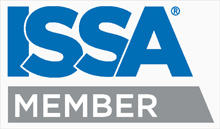HEPA Filters
 High-Efficiency Particulate Air (HEPA) is a type of air filter. Other types of air filters include High-Efficiency Gas Absorption (HEGA) and Ultra-Low Particulate Air (UPLA). HEPA filters are commonly used in the industry, from airlines to vacuums and medical air filters. According to the United States Department of Energy, a filter must remove 99.97% of 0.3 µm particles to qualify as a HEPA filter.
High-Efficiency Particulate Air (HEPA) is a type of air filter. Other types of air filters include High-Efficiency Gas Absorption (HEGA) and Ultra-Low Particulate Air (UPLA). HEPA filters are commonly used in the industry, from airlines to vacuums and medical air filters. According to the United States Department of Energy, a filter must remove 99.97% of 0.3 µm particles to qualify as a HEPA filter.
A HEPA filter functions by three mechanisms: interception, impaction, and diffusion. During interception, particles less than 100 nm are diverted from its directional path and adheres to the filter fibers. During impaction, particles greater than 1 micron simply impact and adhere to the filter fibers because of its size. In diffusion, particles less than 0.1 µm will collide with other particles and change directional paths per Brownian Motion. By changing directional paths, particles of this size will adhere to the fibers by either interception or impaction. HEPA filters do not filter pet odor, volatile organic compounds, or chemical vapors. A charcoal or an activated carbon filter can be used with a HEPA filter to filter odor and gasses.
HEPA filters are classified by their total retention ability. An E10 HEPA filter can retain at least 85% of total particulates whereas an H14 HEPA filter can retain at least 99.995% of total particulates. An H14 filter can protect a user from airborne diseases such as tuberculosis. A U17 UPLA filter is a high efficiency filter that can retain at least 99.999995% of particulates.
HEPA designed vacuum cleaners that use HEPA filters have cleaner exhaust air. Because a HEPA filter traps pollen and other fine particles, this reduces allergies and significantly improves overall air quality. To help further improve air quality, vacuuming frequency should be higher in areas of lengthy occupancy such as bedrooms.
For a listing of Multi-Clean carpet care products, please visit Multi-Clean’s Carpet Care webpage.
For a listing of HEPA approved vacuums and filters, please visit the Minuetman International webpage.


Thanks for pointing out the limitations of HEPA filters. Many people assume that this type of filter will freshen the air, but that’s simply not the case. As you stated, a charcoal (activated carbon) filter is what you’ll need to remove odors and is best used in conjunction with a HEPA filter.
Thank you for clarifying about this product. Searching for the best product to improve our indoor air quality can be very tricky because there are so many options in the market. Knowing their uses is very helpful.